by Jenny Rose | Feb 14, 2019 | A Flourishing Woman, Mind
I was recently introduced to
Havening. I’d never heard the term before, but I was intrigued by a brief explanation that Havening is a neuroscientific tool to assist in repairing emotional trauma. I looked at a couple of
links and was so interested I tried the
technique myself, just to see what would happen.
The human brain’s structure, function and capability are still a mystery to us in many ways. The brain does appear to be highly plastic; that is, we learn, we unlearn and we can develop new neural pathways and rehabilitate, to a greater or lesser degree, some kinds of physical traumatic brain injury as well as emotional trauma. We obviously treat some brain-based dysfunctions by pharmacological means, in the form of prescription drugs or self-medication via alcohol, nicotine and illicit substances.

Photo by freestocks.org on Unsplash
In our current culture of emotional illiteracy, sometimes the only way we know to mitigate our emotional pain is to numb out or distract. Relieving our symptoms, however, doesn’t address the root cause of our difficulty, it only covers it up for a time. Havening is a tool that allows us to address the source of our trauma and pain without chemical substances or the need for specialized (and expensive) treatment. It empowers us, the experts on our wounds and broken places, to become our own healers.
Nowhere on the Havening website or in the video is there mention of us giving our consent to the possibility that we can change, grow and heal. However, that is in fact the first step. I have observed, in myself and others, that sometimes we become so deeply invested in our pain and limiting beliefs we’re really not willing to heal and change. We say we are. We say we want to feel better, but when it’s time to do the work of exploration, excavation and learning to make different choices in managing our thoughts and feelings, we don’t. We’re not willing to be wrong, let go of our grievances and stories, practice forgiveness and give up the satisfaction of shaming and blaming others.
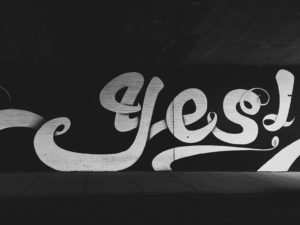
Photo by Jon Tyson on Unsplash
I suspect Havening is a waste of time for those who approach it unwillingly, just as more traditional therapies are a waste of time (and money) if we’re only going through the motions.
Assuming we consent to give Havening a chance, the technique requires us to sit with ourselves in a quiet, safe place and deliberately bring to mind a single difficult memory or event. Rather than running away from our feelings, we intentionally recreate and recall them in all their vivid intensity, and as we do so we notice how our bodies process and express our difficult feelings. When we have re-experienced, as fully as possible, the feelings around our memory or event, we begin to lightly stroke or rub our arms, self-soothing with our own touch and presence. Still stroking our arms, we close our eyes and visualize walking along a beach, counting slowly to 20. Still stroking our arms, we open our eyes and, without moving our heads, look to the left, then the right, then the left. We don’t have to do this quickly or with strain. We practice this lateral gaze, combined with stroking our arms, for a minute or two, then close our eyes and visualize walking through a summer meadow, counting slowly to 20 again. We follow that with the lateral gaze for a couple of minutes, all the while still stroking our arms. The third and last visualization is of walking down a staircase, combined with arm stroking and counting slowly to 20. We follow that with practicing the lateral gaze for a couple more minutes.

Photo by Ryan Moreno on Unsplash
At the end of this series of steps, we relax and intentionally probe the memory we started with. We notice how our bodies feel and what our feelings are compared to when we started.
I know from
emotional intelligence training experiencing our feelings fully and completely is the best way to allow them to move through us and dissipate, but I frequently feel so overwhelmed by the intensity of my emotions that I’m afraid to do that. Sometimes I think if I start crying, or expressing rage, I’ll never be able to stop; I’ll fall over some invisible edge of self-control into permanent madness and chaos. Havening is enormously useful for me because it gives me a safety net to fall into. No matter how strong my feelings are about a specific memory or event, I know I’m going to be able to successfully help myself calm down and feel better immediately. I don’t need to wince away or try to minimize my feeling experience.
I’ve spent much of my life starved for loving touch. I’m not talking about sex here. I’m talking about skin to skin touch that says “I’m here. I care about you. You’re safe with me.” In times of high stress and upset, I frequently wrap my arms around myself, the closest I can get to getting a hug. Havening provides the physical comfort of touch, which we know can calm stress and produces serotonin, a natural chemical our brains make that gives us a feeling of well-being.

Photo by Liane Metzler on Unsplash
Anyone who
meditates or has done Lamaze breathing for childbirth knows when we focus on breathing or a mantra our minds learn to be quiet. The three visualizations used in Havening, combined with self-touch and counting, immediately distract from the intensity of our emotional pain, as does practicing the lateral gaze. We rarely use our eyes to look laterally without moving our heads, and to intentionally and repetitively do so takes focus.
The purpose of this specific set of steps is to “rewire” a neural pathway caused by emotional damage or trauma. The links in the first paragraph explain the science and neurology behind this better than I can, so I won’t reiterate. What I will say is, somewhat to my astonishment, I noticed a sharp decrease in the emotional pain surrounding a memory the very first time I tried Havening. I didn’t lose the memory, but it was no longer attached to such an intense emotional reaction. I could think of it and remain physically relaxed and centered. I could see it more objectively. I could say, “Yes, that happened. It hurt me, but now it’s over.” Overwhelming unpleasant feelings were no longer connected to the memory.
As I practice Havening, I notice a couple of interesting things. The first is that the memories that give me the most trouble are small. A single phrase that broke my heart and irrevocably changed everything. A memory of no words at all, just someone else’s strong emotion. I use Havening to address my most private mental slideshow, where each slide is a single small period of time; a single scene, rich in sensory detail; a single moment of terrible clarity and revelation. I marvel at the power of these small pieces to shape our lives so profoundly. I never think of Havening around divorce and break-ups or even deaths. Those obvious upheavals are not the events in my life that have had the most power.
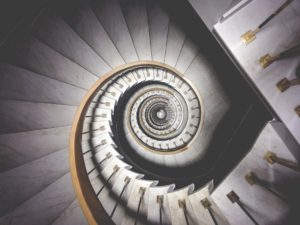
Photo by Ludde Lorentz on Unsplash
The second thing I notice is how my visualizations are changing. The first time I did Havening, I followed the cues in the video exactly. I had no plan to elaborate on the three visualizations. As I’ve made a practice of the technique, though, my visualizations are becoming more and more vivid and sensual. I imagine walking hand-in-hand with someone. I imagine the feel of the sun, the sound of the sea, the grand sweep of a lovely curving staircase and a crowd of people waiting for me at the bottom. I also note that the unintended elaboration of the visualizations is all positive. I feel safe, protected, loved and joyous. There’s no lingering feeling of pain or discomfort from the memory or event I recalled just a minute before.
Havening is, above all, a flexible tool. Anyone can use it and fit it into his or her particular spiritual, religious or philosophical framework. It’s completely private and open-ended. Havening can be done once a week or three times a day. I can work with a single memory for a week if I need to, or tackle a new one each time I practice. It works equally well with old memories or new upsets.
Havening provides a kind of emotional detox. Since I’ve been doing it I feel lighter, more peaceful and as though I can think more clearly. I’m less easily triggered and hijacked and I respond more and react less. My head and heart are less cluttered. My feelings seem more like allies and less like enemies.
The biggest gift of Havening is the way it supports my intention to be authentic. It seems to me we all suffer some degree of
shame about the things that really hurt us. It’s hard to explain, even to ourselves, why a few words or a gesture hurt so much. We tell ourselves and others not to be silly or dramatic or have such a thin skin. Havening provides an open door, an invitation to honestly acknowledge our hurts and take
responsibility for soothing them. It gives us permission to feel our honest feelings without the need to minimize, explain or justify. We are fully empowered to respect and address our own pain.
Finally, Havening has become a ritual of self-care. I like essential oils, and I set out a blend from Young Living, a bottle of massage oil and a small hand towel by the chair I practice Havening in. I rubbed a white candle with the essential oil blend, and when I sit down I light the candle, mix the oils and use the mixture on my arms, hands, cuticles, etc. as I practice. Ten or fifteen minutes of deep moisturizing, aromatherapy and massage, in combination with Havening, leaves me feeling calm, strong, centered and cared for.
Havening is a new technique with a lot of promise. I’m interested to watch it evolve and be subject to scientific studies. Several practitioners are expanding Havening for other psychological applications, and I follow the blog with interest. In the meantime, it’s a powerful tool that costs nothing, does no harm, and results in significant benefits.
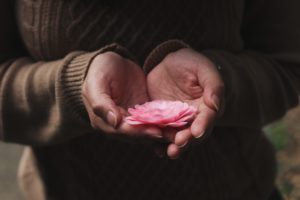
Photo by Ester Marie Doysabas on Unsplash
All content on this site ©2019
Jennifer Rose
except where otherwise noted
by Jenny Rose | Apr 26, 2018 | A Flourishing Woman, Mind
I’ve never really thought much about vampires. I read Bram Stoker’s Dracula as a teenager, but I didn’t get into Anne Rice and I didn’t watch TV for nearly 20 years. When I came to Maine, my partner immediately set out to correct my cultural deprivation. He introduced me to Buffy the Vampire Slayer, which I fell in love with, which led to Angel. Then there was True Blood and Jace Everett’s sexy song, “I Want to do Bad Things With You,” along with a lot of other sultry Cajun music.

James Marsters as Spike (Buffy the Vampire Slayer)
The aspect of vampires I was familiar with was the archetypal one. We’ve all run into people like this. They’re the ones we walk away from with a feeling of having been drained, no matter how brief, inconsequential or seemingly innocent the interaction was. Sometimes it’s hard to pin down exactly how they manage to suck all the energy out of any given person or situation, but they do. They’re insatiable and dangerous. I suppose they might be sexy, too, but not in the straightforward, I-wanna-do-bad-things-with-you-way where you both get to have fun. They’re all about the fuel, and others are just fuel-dispensing appliances.
These vampire series, characters, actors and writers added a lot of good creative manure to my already robust interest in all things magical, archetypal and mythological. Lately I had an idea for a writing project within the frame of plants and trees with thorns, and I wanted to revisit vampires within that context.
Well! Little did I know what a goldmine I would find.
I have a well-used reference library of witchcraft, folklore, myth, legend, symbology, magic and occult, not to mention the Internet. Any kind of magic intersects with herbs and plants, so I have a lot of reference books covering those subjects as well. I began to think about thorny plants I’m familiar with. The most obvious, as they grow all over our land here in Maine, are brambles. Bramble, it turns out, is a lovely old-fashioned word meaning blackberries or raspberries. I began to research folklore surrounding brambles.
I happily juggled my laptop and handwritten notes. Books piled up on the floor around my chair. I lost track of time.
I discovered brambles are a specific (meaning remedy) for vampires. Who knew? If you are bothered by a vampire, you need only cut some bramble canes and lay them in front of your windows and on your threshold. When the vampire arrives in the dark hours to drink from you, it will be unable to pass the bramble canes until it counts every thorn. This task should keep it well occupied until sunrise, at which point it will be forced to decamp.
I was enchanted by the vision of a sensual, dark, hollow-cheeked vampire, intent on seduction and blood, hunched over outside the window trying to count the thorns on a bramble by the light of the moon. (Do mature (ahem) vampires need reading glasses for close-up work?) Picture his slumbering victim, young, palpitating, curving flesh on tempting display as she sleeps naked amid the tumbled sheets. So delectable! The smell of her flesh! The sweet throbbing pulse at her neck — and other places! Alas! He must stop to count the thorns. The cruelty of life! Or maybe I should say the cruelty of undeath.
How is it I’d never known that vampires had this particular compulsive side to their character? Why does no one ever talk about these important things?
This was too juicy a lure to ignore, so I temporarily abandoned my research on thorns and collected a new pile of books to see what else I didn’t know about vampires.

Photo by Anton Darius | @theSollers on Unsplash
Interestingly, the Christian cross and so-called holy water were not traditionally used to repel vampires. (All due respect to Buffy and Angel.) The vampire is an ancient universal archetype recognized well before Christianity in cultures all over the world.
That being said, there are several plants that assist in vampire protection, one of them being the old stand-by, garlic. This can be used fresh or dried. Another protective plant is peppermint. Presumably, vampires dislike the smell. The Element Encyclopedia of 5000 Spells suggests wearing fresh peppermint leaves around one’s neck in bed, and adds parenthetically that peppermint is an aphrodisiac. Perhaps part of the efficacy of this old spell is that one will not be alone in the bed.

Photo by Kelly Sikkema on Unsplash
Both garlic and peppermint can be used fresh or dried, in combination or singly. If you know from whence the vampire rises, garlic scattered over its grave should keep it firmly underground where it can do no harm. Peppermint oil is also said to be efficacious, applied topically to the skin or pillow (of the intended victim, not the vampire). Surprisingly, lilac oil is also recommended. This is quite hard to find even today, and very expensive. (How was this discovered, and where? How was the oil procured?) The spell clearly specifies it must be essential oil from the lilac, not a chemical perfume. Interestingly, a remedy for psychic vampires, as opposed to the coarser blood drinkers, was infused rosemary taken as a tea or used to bathe in.

Photo by Vincent Foret on Unsplash
Iron is very commonly used as protection against many otherworldly folk, and vampires don’t like it, either. An iron ring set with pearls is said to protect the wearer from vampires. (Why this combination? Where did this belief come from?) Also, if one takes more than 100 iron nails and hammers them into the ground over the vampire’s grave, it will not be able to rise. Similarly, in what is clearly an old bit of women’s witchcraft, if one drives nine wooden spindles into the ground over the grave three days after burial, the vampire will not be able to rise.
I liked all that, but many of these protections are quite similar to other specifics for various spooks, haunts, ghosts and fairy folk. I’ve saved the good stuff for last.

Photo by Manuel Sardo on Unsplash
It turns out everyone used to know vampires are obsessive compulsive! If one doesn’t happen to have brambles, fishing nets can be used at windows and doorways. In this case, the vampire has to stop and count the knots. Or, if you prefer, sieves can be used, because they have to stop and count — you guessed it — the holes. This makes me think about our modern screens. Here was I, thinking it was all about keeping out the bugs. Nobody ever told me we were keeping out vampires as well. Alternatively, one can sprinkle millet in the graveyard where a vampire is buried, and it won’t be able to leave until it counts every millet seed.
This changes things. I wonder if this is the vampires’ dirty little secret. Maybe all the dark brooding looks, swirling cloaks, drama and theater is just distraction from what they don’t want anyone to find out — that they’re compelled to count. It definitely dulls my frisson of erotic fear. I wanna do bad things with you — as soon as I count this. What if the vampire’s prey has freckles? It almost makes me feel sorry for them. Keeping secrets is hard work. Think of the relief when people switched over to Christian crosses and holy water and forgot about brambles, nets, millet and sieves (and freckles).
My absolute favorite vampire remedy, though, has nothing to do with counting. It involves the oldest cleaning and purification tool: running water. For this one, it’s necessary to know exactly where the vampire is buried. One must procure the vampire’s left sock. (The left sock, not the right. Is this further evidence of compulsivity? Do vampires label their socks left and right? Does one ask politely for the left sock, steal it while they sleep, or wrestle the vampire for it?) Fill the sock with dirt from the vampire’s grave and stones from the cemetery in which it’s buried. (What if it’s a sock with holes in it? Do vampires darn their socks?) Throw the sock into water running away from the area to be protected. Now you have banished the vampire from that area.
Finally, for all you peacemakers out there, here’s fokloric advice from the Romani people of Macedonia. Vampires, it transpires, love milk. Romani legend says if one makes regularly scheduled offerings of milk to a troublesome vampire, it will agree to leave a short list of people alone.
(This is beyond fascinating. What other traditions and folklore come from this group of people? Who were they? Do they still live tribally? Were their milking animals cows, sheep or goats? Do they have written or oral records? Why are they the only ones who figured out a peaceful coexistence practice regarding vampires? But no, that’s probably carrying it too far for this post. I can research that another time. Do they have protective spells against werewolves, I wonder? Hmmm …)
There you go. Now you know everything you need to know to protect yourselves from vampires. You’re welcome. I hope you’re half as delighted as I am by this esoteric lore.
Before I leave you this week, I do want to say that I am in no way minimizing or mocking the suffering of those who struggle with obsessive-compulsive disorder and like illnesses. I write this post in the spirit of playfulness and fun. Please accept it as such.
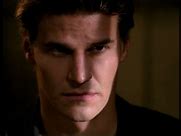
David Boreanaz as Angel (Buffy the Vampire Slayer, Angel)
Hand me that bramble branch, will you? Where are my glasses? Let me see … one, two, three …
How long until sunrise?
All content on this site ©2018
Jennifer Rose
except where otherwise noted
by Jenny Rose | Feb 8, 2018 | A Flourishing Woman, Mind

Photo by Dakota Corbin on Unsplash
In the mornings now, I strap on my snowshoes and go down to the river. This is the first time I’ve ever snowshoed, and when I began a few weeks ago I anticipated moving silently and gracefully (as opposed to floundering like a pregnant hippopotamus) through the landscape, seeing the animals that make the tracks rather than just the tracks themselves.
It was a lovely vision.
The reality is that cycles of snow, sun, rain and subzero weather do not create a fluffy blanket on the ground, but a crusty, layered mix of wind-hardened drifts; thick, lumpy ice; and bitter frozen ground. Walking on it, I feel exactly like Sasquatch, lurching and loud. CRUNCH, crunch, crunch, and then CRUNCH and wallow, wallow, wallow and giggle, swear, giggle. If one fails to lift the tip of a snowshoe up far enough, it catches under the top crust and down one goes on hands and knees, thrashing in several inches of cold, grainy powder to regain a standing position and some kind of solidity underfoot. The only wildlife I see is a squirrel or a pileated woodpecker observing me from a high perch, alternately laughing scornfully and scolding.
So much for romance.
My partner and I walk gingerly out to the mailbox or car on the glassy ice in the driveway, taking tiny, tentative steps and testing each before going on. Somewhere, under all that ice, lies a sleeping world of earth, grass, clover and the inhabitants of the soil. I wonder, do they know this very minute more snow is falling on the layer of ice above them? Do they hear our footsteps slipping and sliding, or the click of the crampons we use on our boots or on the bottom of the snowshoes? Do the delicate weights of the juncos eating sunflower seeds off the ground or the footprints of the squirrels as they race from tree to tree, foraging and playing, reach the world beneath the winter skin of ice?
When I arrived at the pool to swim yesterday, an exuberant group of adolescent boys was in the water, shooting balls through a hoop. In a nearby lap lane, I settled down into my usual steady Zen freestyle, letting my mind drift from this week’s blog post to the day’s writing and all points in between. The sun shone in a row of windows alongside the pool, so I swam through alternating bars of shade and light.
Above the skin of water, the boys shouted, yelled, laughed and talked, jumping and splashing, filling the air with the echoing noise characteristic of indoor pools, along with the slap and slosh of agitated water and the sound of balls bouncing off the rim of the hoop or the tiled floor around the pool.

Photo by Jeremy Bishop on Unsplash
Under the water, I entered a different world, a silent world of rippled turquoise light and blue water. As I swam through intermittent sunlight, my shadow reached its arm toward my fleshy arm as I stroked, the two sets of fingers trying to touch. The agitated water rocked me so I had to turn my head farther when I breathed in order to avoid a mouthful of chlorinated pool, but the noise from the world above sounded far-off and muted, nothing but a background for my own thoughts. I didn’t notice when the boys exited the pool and I was alone with the ripples of light and the steady stretch, pull, breathe and kick of my body.
Under the snow lying over the meadows and fields on this land is a world of field mice, shrews and other small creatures. They run through tunnels of last season’s decaying growth, foraging, sleeping, mating, fighting and living their lives. What do they think as I pass over them, a giant in snowshoes on sharp teeth? Do they crouch and cower in terror, or do they feel secure under the thick skin of snow? They surely must mark my passage, but their presence escapes me entirely. Does my weight cave in their tunnels and storerooms? When I fall through the crust am I laying waste to whole communities hidden beneath the snow? Do my footprints provide hunters from worlds above easier access to prey living in the layers below?
In the old tales, heros and fools, youngest sons and tricksters descend. They fall into dreams and oceans, enter wells and caves, go through trapdoors in the floor, climb down beanstalks and step down stairs. They crawl down chimneys or disappear in the red maw of a wolf or the cavernous insides of a whale. They brave cellars and tunnels and dungeons. They find worlds of magic, of mystery, of intuition and wisdom and hidden treasure.
In a lifetime, we travel from the darkness of the womb into the light and back into darkness again. Our experience is layer upon layer of minutes, hours and years. Beneath our skin, hidden in the folds of our exquisite and mysterious brains, are all the things we’ve seen and heard and felt, all the events that have shaped us. Beneath the membrane of our cells is our genetic code, the building blocks from which we are made.
Beneath, and beneath, and beneath.

Photo by Laterjay Photography on Unsplash
The worlds beneath support the worlds above. If the soil does not contain the right mix of microbes, minerals and nutrients, trees will not grow. If the rodents leave our fields for quieter places where Sasquatch is not roaming over their heads, the fox cannot survive here. Without both healthy trees and rodents, the owls hidden in plain sight in the tops of the winter trees will starve.
Yesterday I wrote a scene in which I wanted hedgehogs. I paused my writing and turned to the Internet to research. For two hours, I read about hedgehogs, looked at images, listened to audio recordings of their sounds. Now the section is written, the hedgehogs only a small part of the whole, and the vast majority of facts and observations I collected will never appear in the book. They lie beneath the words. No matter. That research, my delight in these small creatures and their private lives, will enliven and enrich the story, even if invisible to the reader.

Photo by Tadeusz Lakota on Unsplash
What lies beneath my skin and yours? What’s concealed beneath the skin of ice, of water, of rock, of soil, of forest and meadow and swamp? What can we learn from those who know how to travel from one layer, one world, to another? How far might we descend, or, for that matter, ascend?
Peering beneath the skin. My daily crime.
All content on this site ©2018
Jennifer Rose
except where otherwise noted
by Jenny Rose | Dec 7, 2017 | A Flourishing Woman, Mind
Scrying is “the practice of looking into a suitable medium in the hope of detecting significant messages or visions.” (Wikipedia)
My laptop has developed the Technical Flu and is in the shop. I’m chagrined to discover how much I depend on it. It’s the only portable device I have, as I still resist the pressure to obtain even a cell phone. Suddenly, my access to music, DVDs and the Internet is restricted. I know, it’s a first world problem, but I’m not complaining. I whined for the first few days, but as I sit down to write this post what I mostly feel is a kind of grateful wonder.
In my laptop’s absence I find a lot of quiet. Without my usual entertainment and distraction, my ears, eyes and attention are freed. As I work on the second book of my series, I’ve picked up a sketch pad and colored pencils in order to create a map of my very complex world where the myth, fairy tale and oral history of several cultures meet and interact. Without access to my one-dimensional outline on my word processor, I recognize the need for a two or even three-dimensional model to truly show all the connections and correspondences of the series. I’ve discovered new depths to my creative vision and work and considered new ways to approach it.

Photo by Ludde Lorentz on Unsplash
Folk and fairy tales often speak of depths. Caves, tunnels, wells and stairways descend to other places, magical underground kingdoms where evil beings lurk and flex their destructive forces and unexpected but powerful animals or crones or fairies save the hero or heroine. Gypsies, oracles, shamans and seers scry crystal balls or pools of water, smoke, fire, mirrors or stones. Runes whisper messages. Tarot cards reveal enigmatic insight.
We are in the depths of seasonal darkness now. In two weeks the light begins to return. Here in Maine the day starts to fade at 3:30 in the afternoon and an hour later it’s full dark. What do the depths of darkness hold? What lies between the stars? What dreams unfold behind our eyelids during the long sleeping hours? What lives, hunts and dies in the winter-bare forests under the moon? What stirs in the dark sea’s deeps?
If we could separate ourselves and all those around us from our tech and toys, if we could all free our eyes from the screen and our ears from the noise and look, clear-eyed and undistracted, at those around us, what would we see in one another? If we were forced to sit quietly at a window with nothing but a chair for company, what might we discover in the world around us? If we stand naked and alone in front of a mirror and look into our own eyes, what looks back at us?
What lies in the depths of longing and loss? What lies denied and amputated in the deeps of a soul? What waits to be rediscovered or reclaimed, healed or released?
Some of the deepest, darkest, coldest and most fearsome depths in my life turned out to be only ankle-deep after all. Ankle deep and unpleasant, but, once challenged and understood, pathetic and sad rather than powerful and terrible. Shallows pretending to be depths. A leech or two instead of a sea monster.
Other shallows are so seductive, so enticing, so shiny, that we joyously bare our feet and run into them, gradually wading farther and farther from shore, our attention captured, our gaze fixed on their captivating surface, and there we stay until we die.
All my life I’ve been told I’m too intense. I’ve never known exactly what that means, and the criticism never fails to both hurt and irritate, especially as I can’t get more information. Asking probing questions is simply an example of my obnoxious intensity, it appears.
I wonder this morning if what people are expressing is discomfort with my love for the depths, for the dark where miracles happen, for the hidden thing, be it dreadful or dazzling. Questioning is falling out of social favor. Political correctness shackles and gags us. The shiny shallows are the place to be, where text messages, emojis and ‘likes’ glitter and frolic and algorithms and ideology teach us what to think, believe, value and buy.

Photo by Ryan Hutton on Unsplash
I can be seduced by the shallows as well as anyone, and have several times been fooled by them, but somewhere inside me resides a wild thing, a female creature that glories in the power of the dark and deep and always returns to passion, emotion, and creativity. I want to dive into the night sky and swim naked among the stars and nebulae. I want to see and be seen, hear and be heard, know and be known. I navigate with a mouthful of questions and an insatiable curiosity. I don’t want life to be pretty and distracting and shiny. I don’t want all my dreams to be sunlit and filled with flowers and kittens.
I want life to be as it is, smelling of musk and blood and starlight, dark and powerful and magnificent beyond my puny imagination. I want the hot eroticism of life and the torn flesh of death. I want to embrace the unknowable, kiss the lips of mystery and reclaim and wield the full power of my fear.
I choose to live in the depths.
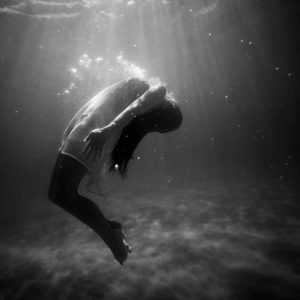
Photo by Christopher Campbell on Unsplash
All content on this site ©2017
Jennifer Rose
except where otherwise noted
by Jenny Rose | Oct 26, 2017 | A Flourishing Woman, Mind
I went to the dentist last week. I spent the usual hour with the hygienist and then the dentist breezed in to give me four or five minutes of exam, comment, teaching and friendly conversation. Thankfully, I don’t require more than this, as my teeth are in excellent shape. In the course of those few minutes, I used the term “permaculture,” and he asked me what it was. I gave him a brief answer, and on the way out the hygienist said I had a “high dental IQ.”
“She has a high IQ, period,” he responded as he left.
I almost got out of the chair and went after him to explain that I’m the dumb one in the family, and certainly don’t have a high IQ.
As I’ve gone about life since then, I’ve thought a lot about that interaction. I’ve also been feeling massively irritated, isolated and discouraged. This morning I woke out of a dream of being in a closet groping for my gun, my knife, even my Leatherman, absolutely incandescent with rage, because a man outside of the closet was having a dramatic and violent meltdown, intimidating everyone present because of something I’d said or done that he didn’t like.
I wasn’t intimidated. I was royally pissed off.
When I had my weapons assembled, I stormed out of the closet and came face-to-face with a clearly frightened woman who was wringing her hands and making excuses for the behavior of the yelling man. I screamed into her face that he could take his (blanking) opinions and shove them up his (blanking blank) and unsheathed my knife, not because of her, because of HIM.
I woke abruptly at that point and thought, I’m not depressed, I’m MAD!

Photo by Nicole Mason on Unsplash
While I showered and cooked breakfast I sifted through IQ and conformity and cultural and family rules, economic success and failure, work, invalidation and silencing and keeping myself small. I thought of how pressured I’ve always felt to toe the line, be blindly obedient, follow the rules, ask no questions and be normal. Normal, as in compliant, and refraining from challenging the multitude of life’s standard operating procedures that “everyone knows.” Normal, as in not daring to resist, persist, poke, peel away, uncover. Normal, as in never, NEVER expressing curiosity, a thought, an experience, a feeling or an opinion that might make someone uncomfortable. Normal, as in never admitting that the way we’re supposed to do things doesn’t always work for me, and frequently doesn’t appear to work for others, either. I slammed around the kitchen, turning all this over in my mind, letting the bacon burn, and finally pounced on a keystone piece to write about.
What does it mean to be smart? Why do I feel like a lying imposter when someone makes a casual comment about my IQ? Why is IQ even a thing? Why does so much of my experience consist of “sit down and shut up!”?
Intelligence is defined on an Internet search as “the ability to acquire and apply knowledge and skills.” Please note the absence of any kind of test score in that definition. Likewise, there’s no mention of economic status, educational status or social status. Also, this definition says nothing about intelligence as a prerequisite for being a decent human being.
The definition takes me back to the playing field in which I wrote last week’s post on work. Here again we have a simple definition for a word which is positively staggering under assumptions and connotations.
Fine, then. I’ve explored what work means to me. What does intelligence mean to me?
Intelligence means the ability to learn, unlearn and relearn. Good learners do not sit down and shut up. We question, and we go on questioning until we’re satisfied with answers. We try things, make hideous mistakes, think about what went wrong and apply what we learned. We don’t do the same thing over and over and expect a different result. We exercise curiosity and imagination. We pay attention to what others say and do and how it all works out. We pay attention to how we feel and practice telling ourselves the truth about our experience. After a lot of years and scar tissue, we learn to doubt not only our own assertions, beliefs and stories, but everyone else’s as well. We practice being wrong. We become experts in flexible thinking. We adapt to new information.
We give up arguing with what is.
Intelligence endures criticism, judgement, abuse, taunts, threats, denial and contempt. It’s often punished, invalidated and invisible. Intelligence takes courage.

Photo by Cristina Gottardi on Unsplash
Intelligence is power. It does not sit at the feet of any person, ideology, rule or authority and blindly worship. It retains the right to find out for itself, feel and express its own experience, define its own success, speak its truth in its own unique voice, and it remembers each of us is limited to one and only one viewpoint in a world of billions of other people.
Intelligence is discerning the difference between the smell of my own shit and someone else’s.
For me, intelligence is a daily practice. It’s messy and disordered and fraught with feeling. It means everything is an opportunity to learn something new. Everything is something to explore in my writing.
I have no idea what my IQ is, and I don’t much care. I’m sick and tired of all the family baggage I’ve carried around about who’s smart and who isn’t and how we all compare. Honestly. What am I, 10 years old? Enough, already.
I’m also fed up with being silenced, and in fact I’ve already refused to comply with that, as evidenced by this blog. I understand a lot of people don’t want to deal with uncomfortable questions. Too bad. Those folks are not going to be my readers. It’s not my job to produce sugar-coated bullshit that can’t possibly threaten or disturb anyone.
So there it is. The practice of intelligence.
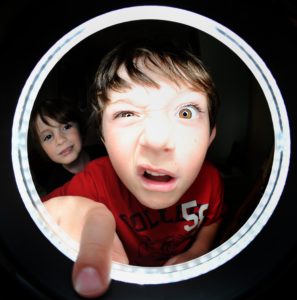
Photo by frank mckenna on Unsplash
All content on this site ©2017
Jennifer Rose
except where otherwise noted
by Jenny Rose | Oct 19, 2017 | A Flourishing Woman, Mind
Make yourself useful!
Can’t you find something productive to do?
Do those words sound familiar? Yeah. Me, too.
I was raised with a strong work ethic and a strong volunteer ethic. Both have been solid foundations in my life, except for one thing:
Our cultural definition of work.
Work: That activity that imprisons so many of us into a schedule, into a car, into rush hour. That large piece of our life in which we must perform certain tasks in certain ways according to certain policies and procedures and do nothing else. That arena in which we compete and prostitute our power to an (all too often) toxic authority.

Photo by Nabeel Syed on Unsplash
Work as defined by someone else and enforced through our fear of losing a paycheck. Usefulness as defined by someone else. Productivity as defined by someone else.
Then there’s workaholism. I’ve been closely connected to more than one workaholic. I used to think workaholism was a meaningless riff on alcoholism, but one day I explored it more closely because it was destroying a relationship. I bought a book (I know you’re shocked), Chained to the Desk, by Bryan E. Robinson, Ph.D., and I read it and wept. I recognized a pattern I’d lived with my whole life: A pattern of unavailability.
Workaholism describes a dynamic in which we become entirely consumed by one idea or activity. Most commonly, it’s a job, but it can also manifest with volunteer work, hobbies and interests, recreational activities or ideologies like religion. Oh, and let’s not forget addiction. During active addiction as well as recovery, some lives remain centered on whatever the addiction is or was. There’s no room for anything else.
The workaholic has a primary relationship, just like an addict, and that primary relationship is all-consuming of his/her time and energy, although most of them will never, ever admit it. Workaholics are compulsively driven, self-destructive, unable to make choices, usually in denial, and they destroy relationships. They view themselves as frantically and endlessly trying to keep all the balls in the air: Family, partner, household, friends and work. Those of us connected to them experience chronic unavailability and abandonment from them and helplessly watch as they become steadily more overwhelmed, exhausted, disconnected, ill and miserable. Trying to talk about it only makes it worse.
Workaholism often begins because we are captivated by an activity we love. We have a sense of mastery and competence, or a sense of contribution. The activity seems to give us a connection to our own power. Sometimes we earn money, or recognition, or develop social bonds, or experience some other payoff that we can’t get enough of and can’t do without. Whatever it is we’re engaged with is familiar. It’s not uncomfortable, uncertain or uncontrollable. We understand what we’re doing. We can succeed at it. It doesn’t frighten or threaten us. When we’re engaged with it we’re not doing anything else. It’s the perfect distraction. We can’t be expected to do anything else. We’re not supposed to be doing anything else. We have no time for anything else. We’re working!
Meanwhile, the rest of the workaholic’s life, all the complicated, messy stuff, becomes a smoking crater. The larger the crater grows, the harder the workaholic works in order to avoid managing or facing it.
It’s a dreadful, destructive cycle.
Some people on the other end of the spectrum from the old 9-to-5, 40-hour-a-week paradigm are talking about unjobbing. Unjobbing challenges the traditional Calvinist work ethic so many of us were raised with. It explores the territory between a 40-hour-a-week job and chronic unemployment supported by foodstamps and other social subsidies. I’ve read a lot about it over the last two or three years.
Unjobbing does not imply that one doesn’t work, just that we define it more precisely, or maybe less precisely. Maybe we should stick with the classic meaning of work as an activity involving effort done in order to achieve a purpose or result, and let any reference to jobs go.
This morning, as usual, I took a walk. I took a bucket with me, because the trees are dropping their cones and I make handcrafted wreaths and other art with them. (When I lived in Colorado, I bought all these cones. Now I take a bucket on my walk and pick them up! I love it.)
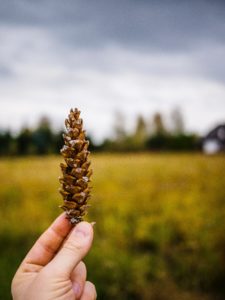
Photo by Michał Grosicki on Unsplash
Eastern White Pine
Anyway, as I walked I thought about all this: Work, unjobbing, workaholism, income sources. I groped around in the terminology, in my guilt and shame about not wanting to work in the way I’ve done all my life, and poked at my deeply-rooted belief that everyone must work! I thought about how expensive it can be to work, in education, in time, in energy, in clothing and equipment, in gas and transportation, in child care, in taxes and “benefits,” in self-respect and power and joy. I thought about work as a limitation, perhaps one of the biggest limiting factors in our lives.
It occurred to me that what I really want is a seamless life. I don’t want my life to look like: Work For Pay. Relationship. Creativity. Housework. Errands. Relaxation. Exercise. Volunteerism. Play. I can do more than live in a series of small boxes, much, much more. I can be more.
I want my life to be like my morning walk. I don’t set an alarm or adhere to any other kind of schedule in order to do it. It’s not a chore; I do it because I want to. It starts my day with exercise. It’s meditative, grounding and centering. It refuels my creativity. It reconnects me to my spiritual source. It provides free resource with which I can earn money and do something I love to do.
All this in a 45-minute walk. Useful. Productive. Joyful. Simple. Free. Seamless.
A seamless life. I don’t know if I can create such a life. I only just this morning identified what I really want. I’m not going to discuss with the voices in my head whether my desire is appropriate, allowed, shameful or possible. Such a discussion isn’t useful. I’ve worked all my life, for a paycheck, as a volunteer, in a household and as a parent. If I have to go back to a traditional job, I will.
But I’m going to try damned hard to find a better way.

Photo by Jon Flobrant on Unsplash
All content on this site ©2017
Jennifer Rose
except where otherwise noted























